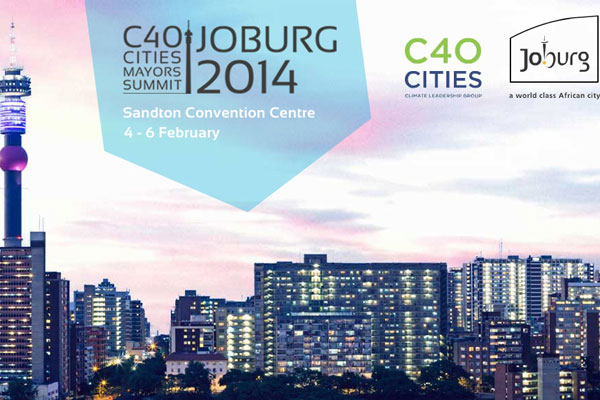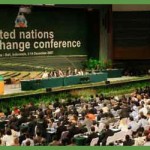The City of Johannesburg says it is working hard to put in place strategies that will help the city adapt to climate change.
As the city gears up to host the C40 Cities Climate Leadership Group Mayors’ Summit from 4 – 6 February, Johannesburg mayor Parks Tau on Tuesday said action taken today could have big implications for the future.
“The choices we make today will determine the future of our city, our country and our planet. That’s why the city is working towards building sustainable communities that are climate-proofed, and have access to basic services and economic opportunities,” said Tau.
Among the strategies, the city is building integrated and liveable communities through “Corridors of Freedom”, which will create a new urban future. These corridors aim to redress the apartheid spatial planning, address the rising population, poverty, inequality, social exclusion and underdevelopment.
The city is also reducing its carbon footprint with sustainable green practices, technologies and efficiencies.
A “complete street”, which encourages eco-mobility (pedestrian lanes and cycling lanes) as well as landscaped sidewalks, green parks and green spaces, will be introduced.
The city has also introduced green transportation through the Rea Vaya BRT, energy efficient buildings, including solar geysers, insulated ceilings and energy saving light bulbs.
Furthermore, the city has already insulated ceilings, and installed compact fluorescent lamps and solar water heaters for low-income households.
In Cosmo City, it installed 940 solar water heaters and 26 850 in other low-income areas.
Rain harvesting tanks have also been installed in various areas, with community green education and awareness campaigns such as tree planting.
This as the city is already experiencing the impact of climate changes by frequent flooding, drought, heat waves and extreme hail storms.
This, together with the projected increase in the city, puts additional strain on the city’s infrastructure and resources.
Tau said these plans are embodied in the Joburg Growth and Development Strategy (GDS) 2040, which aims to create a city that is resilient, sustainable and liveable – where all citizens have access to electricity, clean water, sanitation, food, fresh air, education, health and meaningful employment.
The city has urged communities to start adapting their choices to help reduce climate change.
These could include gearing up homes to be green by installing solar geysers and energy efficient light bulbs, buying more locally grown food, and separating and recycling waste. – SAnews.gov.za





[…] Strategies to mitigate impact of climate change is a post from: EconSpire […]